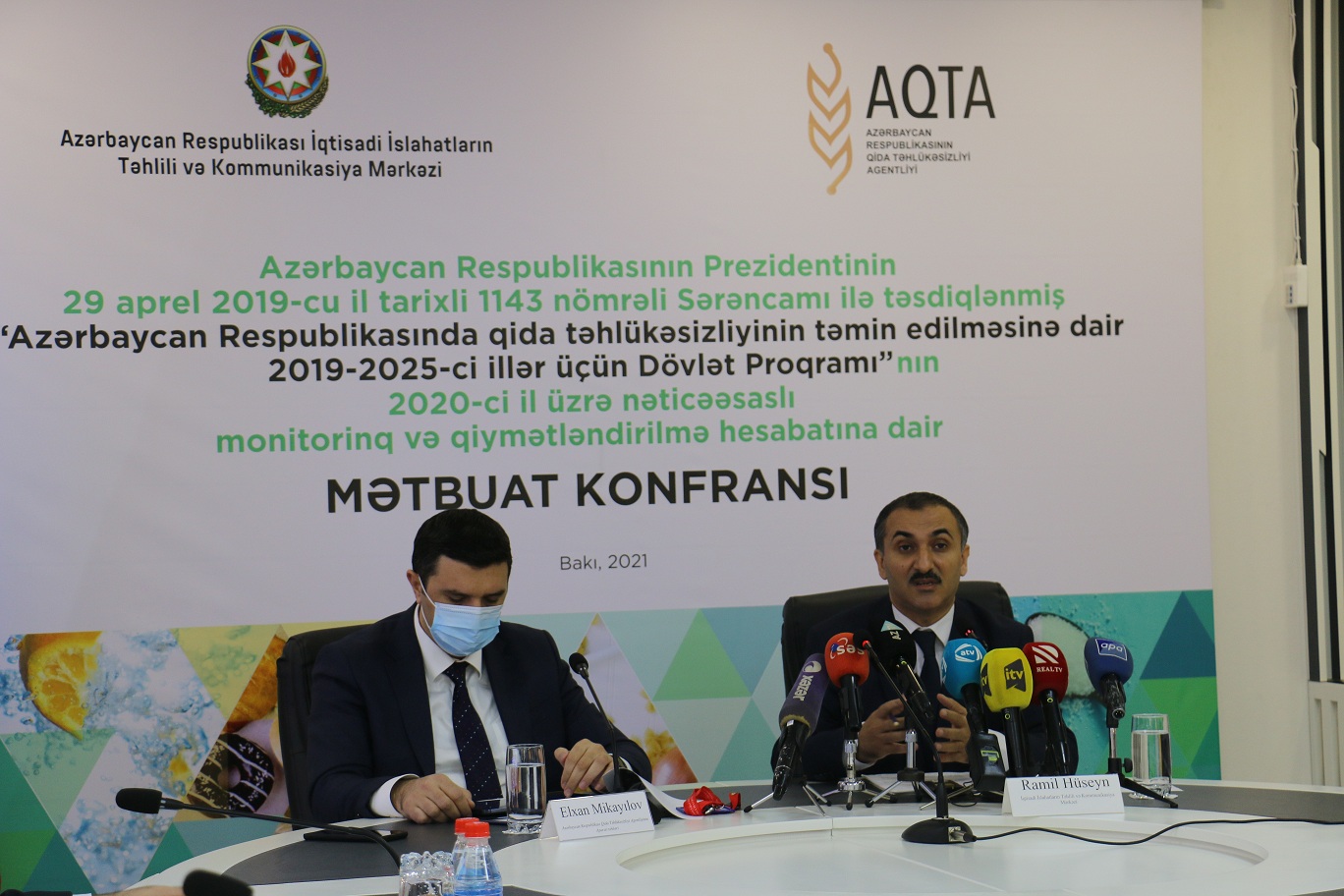
MONITORING AND EVALUATION PORTAL OF THE CENTER FOR ANALYSIS OF ECONOMIC REFORMS AND COMMUNICATION
 |
"We must boldly follow the path of market economy" Heydar Aliyev
|
Results-based monitoring and evaluation of the "State Program for ensuring food safety in the Republic of Azerbaijan for 2019-2025" was carried out for 2020

A monitoring and evaluation report on the 2020 results of the "State Program on Ensuring Food Safety in the Republic of Azerbaijan for 2019-2025" has been prepared by the Center for Analysis and Communication of Economic Reforms of the Republic of Azerbaijan. The monitoring and evaluation of the State Program for 2020 occurred at three levels, encompassing initial results (output), outcomes (outcome), and anticipated impact (impact) indicators. The monitoring and assessment for 2020 encompassed a total of 95 indicators, including 7 anticipated impact indicators, 24 results, and 64 preliminary result indicators. The Program's implementation percentage for 2020 was estimated at 90.4 percent based on the expected impact indicators and 53.95 percent based on the preliminary result indicators of the measures. Notably, this program is the first State Program evaluated based on results. The evaluation focuses not on the work done for each measure (activity-based) but on the activities performed to achieve targeted results and measure expected effects (outcome-based).
Simultaneously, the rating of the primary executive institutions was established based on the assessment of measures for each institution in the respective year. The implementation percentage for 47 measures, with the Food Safety Agency as the main executor, is 58.47 percent, while the implementation percentage for 5 measures with the Ministry of Agriculture as the primary executor is 53.7 percent. Additionally, the implementation percentage for 2 measures, where the Ministry of Education is the main executor, is 35 percent. On the other hand, the implementation percentage for 1 measure, with the Civil Service as the main executor, was assessed as 0 percent. Within the monitoring and evaluation framework of the State Program, an assessment was conducted on 12 main priorities, including the improvement of the normative legal framework related to food safety, enhancement of infrastructure provision, strengthening of scientific support and personnel potential in the field of food safety, formation of a risk analysis system based on scientific evidence, improvement of the registration, approval, and certification system, and a risk-based state control system assessment. This assessment covered the directions of formation, development of public-private sector cooperation, application of modern technologies and innovative solutions, development of international cooperation, education of the population about food safety, promotion of healthy nutrition, and protection of consumer rights.
Overall, full or partial results were achieved for 9 out of 12 priorities assessed according to the planned measures to achieve the goals in 2020, and 7 out of 10 priorities assessed according to result indicators. The main institutions responsible for the carried-out activities are AQTA, the State Service for Antimonopoly and Consumer Market Control under the Ministry of Agriculture, the Ministry of Education, and the Ministry of Economy.
It is worth noting that during the preparation of the relevant report, world experience was examined, and several best practices, including the achievements of the World Bank, Organization for Economic Cooperation and Development, UN structures, and other international organizations in the field of result-based monitoring and evaluation, were widely used. In accordance with the execution period of the State Program, when drawing up the scheme of results, indicators were set for the initial result, intermediate result, and expected effects.
|
About
General information
Rules
|
Media
News
Photos
Videos |







